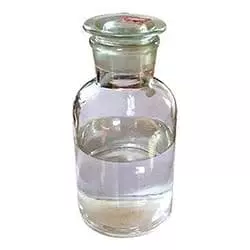IUPAC Name
Ethyl Acetate
Cas Number
141-78-6
HS Code
29153100
Formula
C4H8O2
Appearance
Colorless Liquid
Common Names
Ethyl Acetic Ester
Packaging
180 Kg Drum
Ethyl acetate is a clear colorless liquid with a fruity odor. It is found in alcoholic beverages. It is also found in cereal crops, radishes, fruit juices, beer, wine, spirits, etc. It is produced by Anthemis nobilis (Roman chamomile) and the Rubus species. Ethyl Acetate is an organic ester compound with a molecular formula of CH3COOCH2CH3, commonly abbreviated as EtOAc or EA. It is highly miscible with all common organic solvents (alcohols, ketones, glycols, esters), which make it a common solvent for cleaning, paint removal, and coatings. Due to its agreeable aroma and low cost, ethyl acetate is commonly used and manufactured on a large scale worldwide. Ethyl acetate density is 902 / kg/m³.
Ethyl acetate is synthesized in the industry mainly via the Fischer esterification reaction with ethanol and acetic acid. This mixture converts to the ester in about 65% yield at room temperature:
CH3CH2OH + CH3COOH → CH3COOCH2CH3 + H2O.
The reaction can be accelerated by acid catalysis and the equilibrium can be shifted to the right by the removal of water. It can also be prepared using the Tishchenko reaction by combining two equivalents of acetaldehyde in the presence of an alkoxide catalyst:
2CH3CHO → CH3COOCH2CH3
It is used in a variety of paint and coating formulations such as epoxies, urethanes, acrylics, and vinyl for applications in wood furniture and fixtures, agricultural, construction and mining equipment, auto refinishing, marine, etc. Solvent Ethyl Acetate is a solvent and diluent because of its low cost, toxicity, and agreeable odor. It is commonly used in a wide range of applications, including printing, inks, varnishes, and car care chemicals, and in the production of enamels, plastics, and rubber.
It also plays a role in manufacturing printing inks, in the packaging industry, and in the production of adhesives. In perfumes, it evaporates quickly, leaving only the scent of perfume on the skin.
